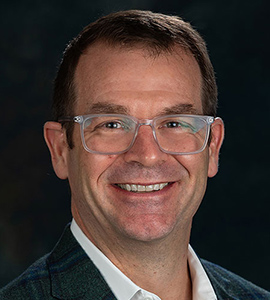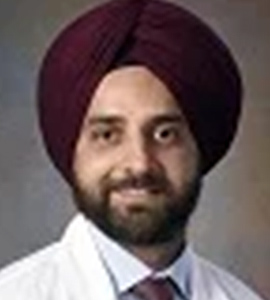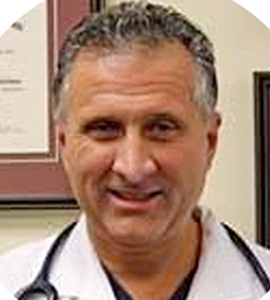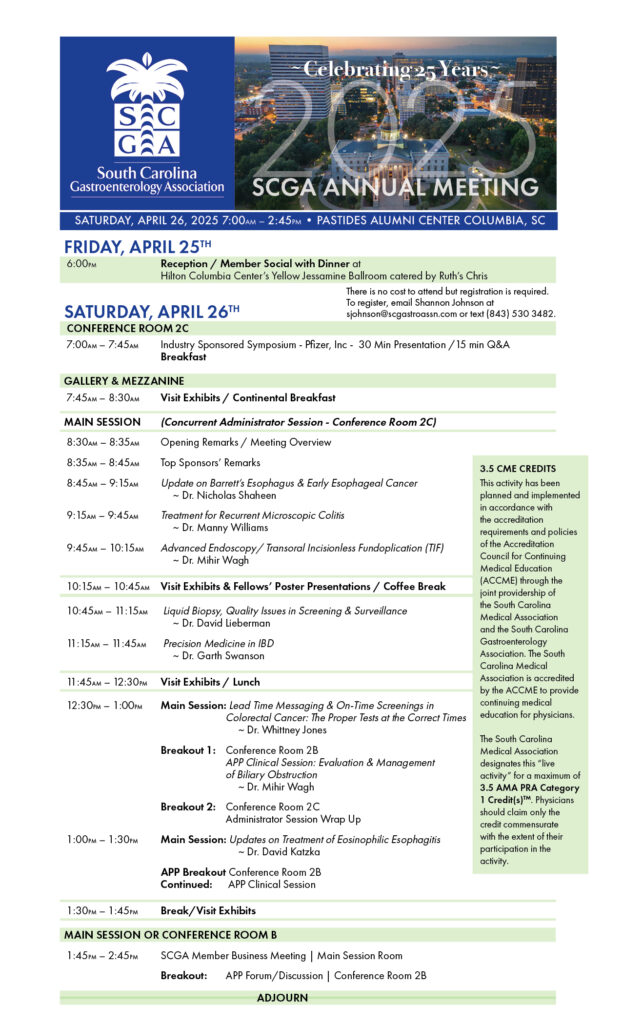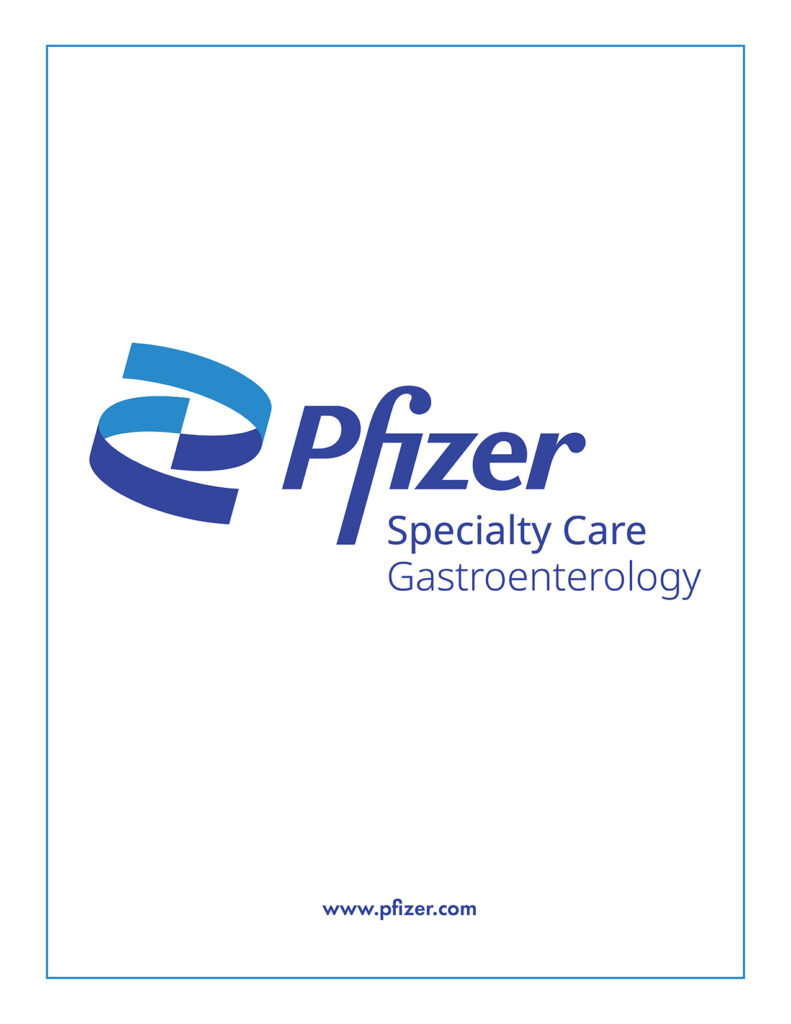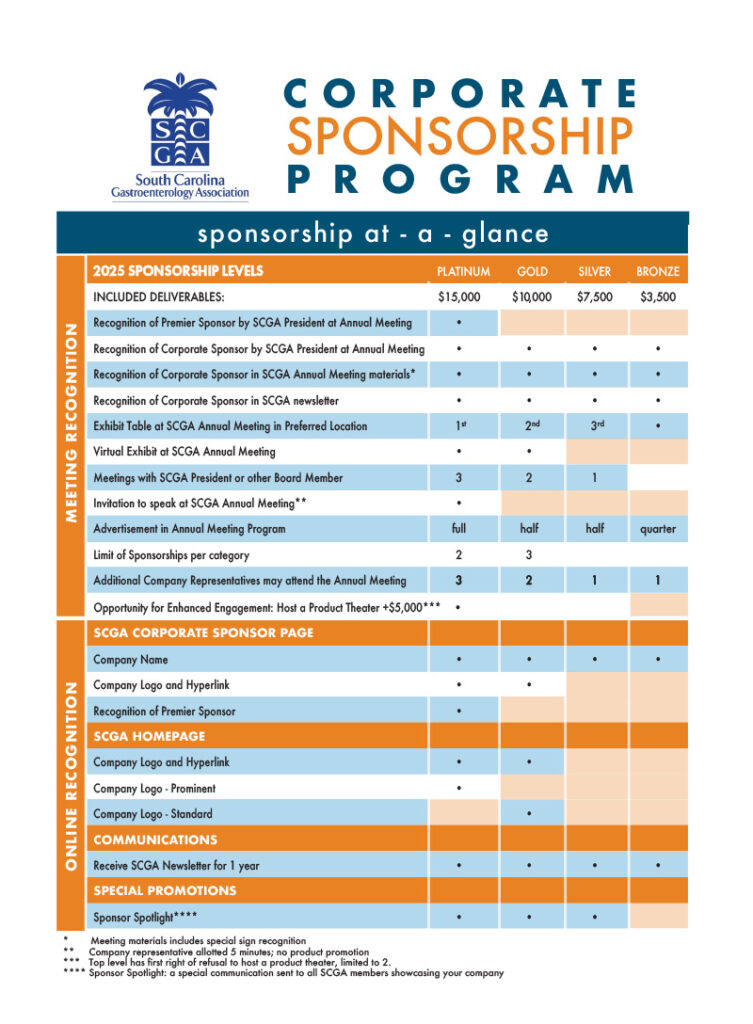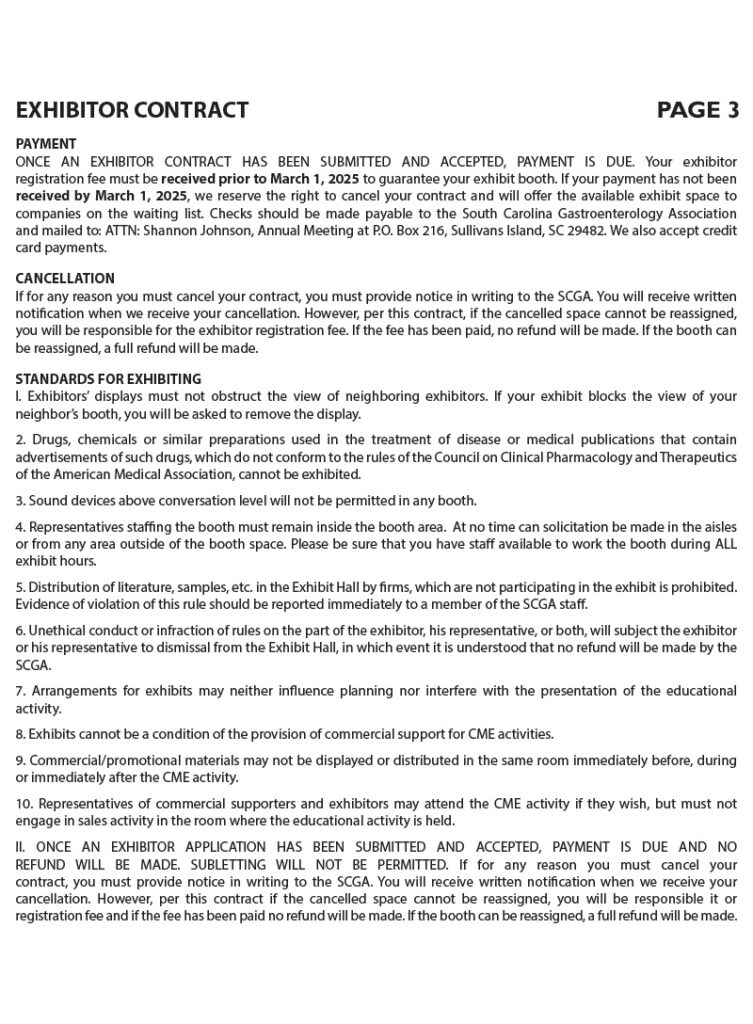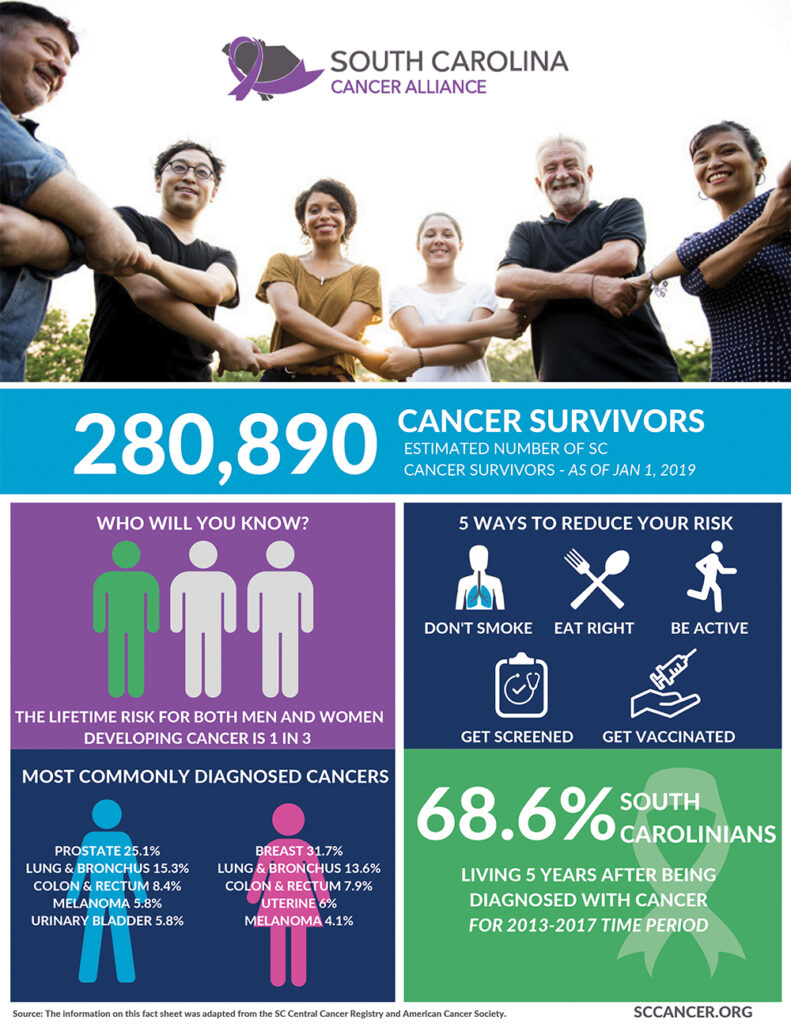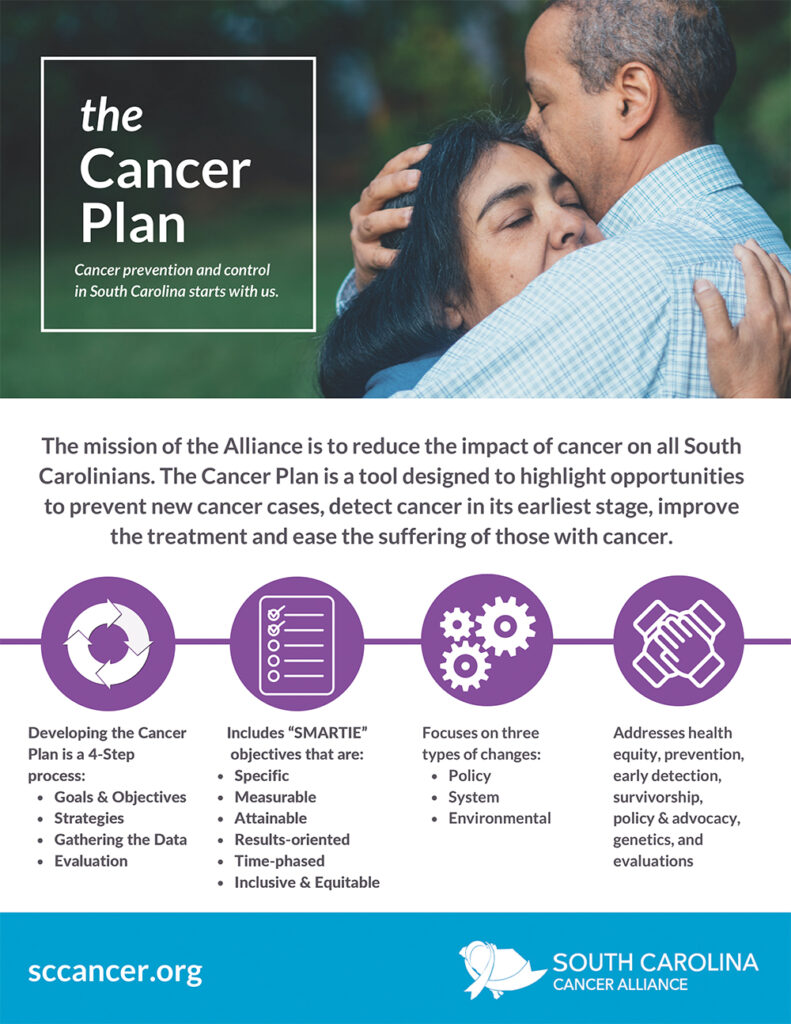Gastroenterology
Our Members
Cover All of
South Carolina
From the mountains of the Upstate to the dunes of the Coast, South Carolina Gastroenterology Association represents the majority of GI practices in our state. As a group, our voice can be a powerful tool in health care, education, and governing awareness.
Our Mission
Advocacy,
Education &
Health Care
Our purpose is to promote the digestive health of South Carolinians, to foster the development and fellowship of physicians and medical professionals who have similar interests in the practice of gastroenterology and endoscopy, and to maintain the highest standard of clinical practice in the field of gastroenterology and endoscopy.
Wellness
Webinars
Drs. Kent Cunningham, March Seabrook and Bryan Green sit in front of the camera to discuss today's challenges in cancer awareness and prevention, new medical developments and getting the best possible information and medical assistance in South Carolina.
Gastroenterology
Our Members
Cover All of
South Carolina
From the mountains of the Upstate to the dunes of the Coast, South Carolina Gastroenterology Association represents the majority of GI practices in our state. As a group, our voice can be a powerful tool in health care, education, and governing awareness.
Our Mission
Advocacy,
Education &
Health Care
Our purpose is to promote the digestive health of South Carolinians, to foster the development and fellowship of physicians and medical professionals who have similar interests in the practice of gastroenterology and endoscopy, and to maintain the highest standard of clinical practice in the field of gastroenterology and endoscopy.
Wellness
Webinars
Drs. Kent Cunningham, March Seabrook and Bryan Green sit in front of the camera to discuss today's challenges in cancer awareness and prevention, new medical developments and getting the best possible information and medical assistance in South Carolina.
Gastroenterology
Our Members
Cover All of
South Carolina
From the mountains of the Upstate to the dunes of the Coast, South Carolina Gastroenterology Association represents the majority of GI practices in our state. As a group, our voice can be a powerful tool in health care, education, and governing awareness.
Our Mission
Advocacy,
Education &
Health Care
Our purpose is to promote the digestive health of South Carolinians, to foster the development and fellowship of physicians and medical professionals who have similar interests in the practice of gastroenterology and endoscopy, and to maintain the highest standard of clinical practice in the field of gastroenterology and endoscopy.

South Carolina Gastroenterology Association
Welcome to the SCGA website! Our purpose is to promote the digestive health of South Carolinians and to foster the development and fellowship of physicians and medical professionals with similar interests. Please let us know if you are interested in learning more about our organization. Membership is open to interested GI physicians, physician trainees, physician assistants, and advanced practice nurses in SCGA physician practices. We are here to serve our members and look forward to connecting with you!
ADVOCACY IN ACTION
Webinars: Cancer Awareness & Prevention
Drs. Kent Cunningham, March Seabrook and Brian Green sit in front of the camera to discuss the today's challenges in cancer awareness and prevention, new medical developments and getting the best possible information and medical assistance in South Carolina.
Find A Physician In Your Area
2024-2026
Our Board of Directors
OFFICERS
past presidents
About Us
Our History
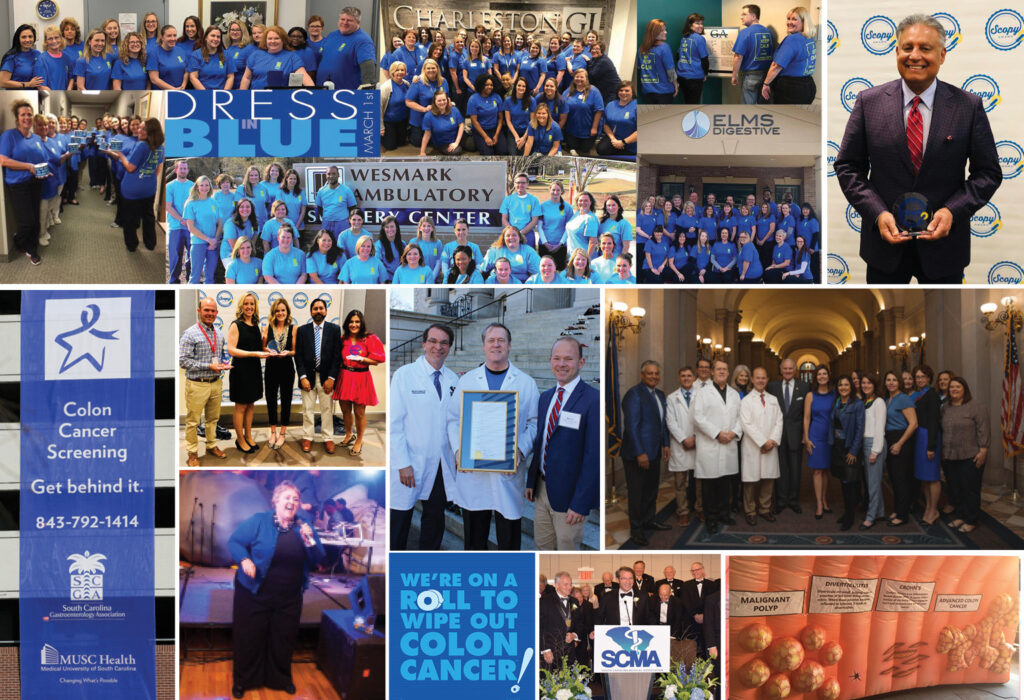

Celebrating 25 Years of the SCGA
Days
0Hour
00Min
00Sec

2nd Annual
GI Fellow Poster Presentations
THANK YOU TO OUR SPONSORS

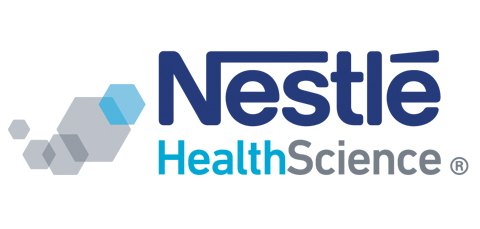

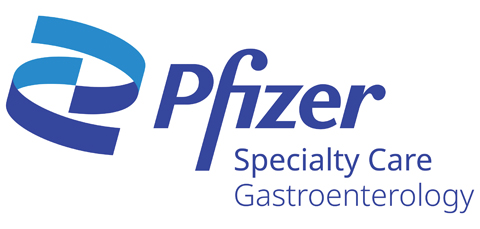





























Thank you to all of our sponsors who will be making our 2025 Annual Meeting an incredible success. For more about what our sponsors have to offer you and your practice, peruse our Virtual Exhibit Hall above.
Immediate Update
Sponsorship Opportunities are Full
We are grateful for the overwhelming interest in our upcoming Annual Meeting & Celebration of 25 Years of SCGA. All available sponsorship opportunities have been taken. The wait list is also full. Thank you for your continued support & we will keep you posted on future events.
√ur:
Colon cancer now ranks in the #2 spot
Killing both men & women, and that’s quite a lot.
So let’s take a moment to become more aware
Of possible dangers in your derrière.
We now know how most colon cancers arise,
They don’t just appear, or fall out of the skies.
Many start off as polyps, small and benign,
But given the chance they can get out of line,
Turn into a cancer that’s able to spread
Throughout your whole body & leave you quite dead.
But instead of expiring, you could live to old age
If your cancer is found at a treatable stage.
If cancer’s found early, 9 of 10 can survive
So we’ve started to screen folks at age 45
To get cancers discovered, and new ones prevented
Using tests and techniques that doctors invented.
Or perhaps colon polyps are seen and destroyed
With the painless techniques that your doctor employed
While you were sedated & comfortably resting,
Your polyps were cut out, then sent off for testing.
If the polyps were small, and only a few,
The tissue report will guide what to do,
And determine just when you’ll need scoping again:
Don’t worry, it’s usually in five years or ten.
So get off your duff, get your rear in high gear
And find out for sure if your colon is clear.
Talk with your doctor about what you should do:
You have options for screening, choose the best plan for you.
Now please spread this message, make others aware
To show that you love them, and know that you care,
For “All’s Well That Ends Well” as Shakespeare did say,
And to beat colon cancer, early screening’s the way!
by John K Corless, MD
PATIENT
Resources
South Carolina Gastroenterology Association does not provide direct patient care. If you are having an emergency medical issue, please call 911 or proceed to the nearest emergency room. Other medical questions should be directed to your doctor, clinic, or local emergency room; they may also be able to refer you to a nearby free clinic or put you in contact with social services to assist with obtaining coverage.
A Gastroenterologist is a physician with dedicated training and unique experience in the management of diseases of the gastrointestinal tract and liver.
For more information about the training a Gastroenterologist receives see the brochure prepared by the American College of Gastroenterology or visit the ACG website.
What is Gastroenterology and Endoscopy?
http://patients.gi.org/gi-health-and-disease/what-is-a-gastroenterologist/
Colon Cancer: Preventable. Treatable. Beatable.
http://www.screenforcoloncancer.org/
http://monahancenter.org/
Colorectal Screening May Save Your Life
http://patients.gi.org/topics/colorectal-cancer/
What is a colonoscopy?
http://patients.gi.org/topics/colonoscopy/
Understanding Colonoscopy and What to Expect:
http://www.asge.org/patients/
Colon Cancer Screening Position Statement: The benefit of screening for any cancer is the early detection of and thereby the ability to cure the malignancy. Early detection of various cancers has successfully decreased the death rate from those malignancies. Colorectal cancer is unique in that a screening technique, colonoscopy, has also been proven to prevent the development of such cancer. Whether the emphasis is on early detection or on prevention may account for the somewhat discordant recommendations by the United States Preventive Services Task Force and those by the American College of Gastroenterology, the American Gastroenterological Association, and the American Cancer Society. The American Cancer Society (ACS) has released an updated guideline for colorectal cancer screening. Among the major guideline changes, the new recommendations say screening should begin at age 45 for people at average risk. Previously, the guideline recommended screening begin at age 50 for people at average risk. Based on data indicating that the benefits of prevention and early detection far outweigh the upfront costs and small risks of the procedure, colonoscopy remains the preferred method of screening for colorectal cancer. The South Carolina Gastroenterology Association recommends that in most patients it should be offered as the first option for screening. In those patients unable or unwilling to undergo colonoscopy, an alternative (CT colography, sigmoidoscopy, fecal immunochemical blood testing, or stool DNA analysis) should be encouraged.
FREE DOWNLOADS FROM THE COLON CANCER ALLIANCE
The American Cancer Society (ACS) has released an updated guideline for colorectal cancer screening. Among the major guideline changes, the new recommendations say screening should begin at age 45 for people at average risk. Previously, the guideline recommended screening begin at age 50 for people at average risk.
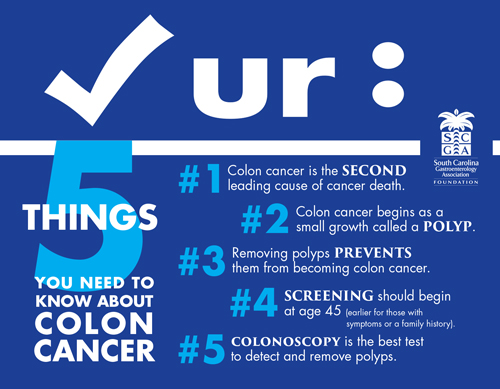
Additional Patient Information Links –
AGA Patient Center
http://www.gastro.org/
American Society for Gastrointestinal Endoscopy Patient Information
http://www.asge.org/patients/
ACG Patient Information
http://www.acg.gi.org/patients/
Crohn’s and Colitis Information
https://www.crohnsandcolitis.com/
Eosinophilic Gastritis Study Brochure
Download brochure
Hepatitis C
http://www.nlm.nih.gov/medlineplus/hepatitisc.html
Irritable Bowel Syndrome
http://www.aboutibs.org/
National Cancer Institute
http://www.nci.nih.gov/
DHEC Hepatitis A Screening Program:
Letter Provider Flyer
SCGA POSITION STATEMENT ON PPI
Download statement


- P.O. Box 216 • Sullivan's Island, SC 29482
- (843) 530-3482
- SJohnson@scgastroassn.com
Problem displaying Facebook posts. Backup cache in use.
Click to show error












